Episodes
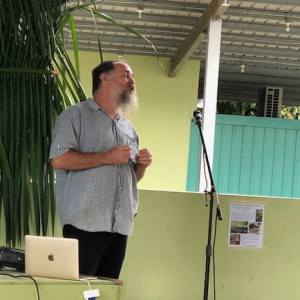
Friday Nov 16, 2018
Friday Nov 16, 2018
Hosted by Ryan Slabaugh
This episode is a bit unique from the others, which are usually done in the comforts of my office back in Greeley, Colorado. For most recordings, it’s me, a microphone, an interview guest and my dog snoring in the corner. If you need the full picture, I even prop a sign up in my windowed door that says, “On Air.” But that’s really just for me – it makes me feel official.
But so does this scene where I am today. Today, we are broadcasting from Belize, specifically, Belmopan, Belize, at the inaugural Tropical Agriculture Festival. We first met one of the organizers, Beth Roberson, a Belizian farmer, in Columbus, Ohio, last year during our annual conference. Beth left inspired to start her own educational conference down here, picked our brains a bit, and recruited some of our speakers and former Tractor Time guests like regenerative poultry specialist Reginaldo Haslett-Marroquin and Regeneration International’s André Leu, among others.
Let me set the stage a bit. Belize is a small country of about 350,000 people, just south of Mexico and east of Guatemala. It’s known for having the second largest reef in the world off its coast, and for being an English colony until the early 1980s. The country, very proud of its freedom, is still finding its feet. The Guatemalan president threatens them with invasion, and England still has a small standing army there as a reminder to their neighbors.
Belmopan is a small town of a few thousand, and wears a few scars. The main roads are paved, but most are not, but a fountain roundabout greets visitors on the Western Highway. A bar-restaurant called “Cheers” greets guests as they arrive into town before a roundabout — I met the owner, and she told me she also runs a “small” farm behind it that includes horses, sheep, cattle, goats and chickens, and yes, she composts from the restaurant. On the other side of the highway, the entrance to a national park. Inside the town, a large agriculture grounds with stages, test gardens and plenty of native trees. This is where the festival was held this week.
The event started with the national anthem, sung by an 8-year-old local schoolgirl. It’s clear from the anthem what the country does not want — tyrants and colonizers. And it’s clear that they want to be a free country, although they are still grappling with which economy will drive its future. The tourism economy, which favors hotels and airports and large ports, or a more local economy, where manufacturing, agriculture and other jobs will fill the gap.
Agriculture, though, will have some part. It has to. Or at least, it’d be silly not to. Pineapples, mangoes, bananas, jackfruits, etc. From any city, it doesn’t take long to be in the country, where anyone would be taken in by the variety of flora, fauna and wildlife, which range from toucans to jaguars to crocodiles. Our first hour in the country, as we pulled into our hotel, the sounds of howler monkeys greeted us. (You’ll have to listen to the podcast for the full effect.)
The next day, the conference began. We heard a resounding call to action from Ronnie Cummins, on the board with Regeneration International, which was followed by two days of educational speeches on five different stages, ranging from permaculture to seed saving to agritourism. All were rooted in how Belize can transform its agriculture into one of the world’s best. And no matter what, you have to give something to a country that starts its weekends on Thursday nights.
Here’s what clips you can find on the podcast. Also, you’ll hear some thumping in the background, and truck noise. I apologize for that recording issue – (I wasn’t counting on so much foot stomping on stage when I set up the microphone, nor could I do much about the nearby highway traffic.)
Ronnie Cummins, Board Member of Regeneration International
Here’s that talk from Ronnie that opened up the conference. It’s about 16 minutes, and full of fire and fury.
Taylor Walker, Biodiverse Systems Designer
Next, a highlight I recorded from Taylor Walker. A jack-of-all trades who designs gardens and permaculture environments, including Naples Botanical Gardens, Inland ecology Research Group, Sanibel Sea School and others. In Belize, he is managing Tropical Agro-Forestry farms.
I’ll play a few minutes of his talk, as he walks about 50-60 people in his class through specific plants that grow well in Belize, like bread fruit.
Christopher Nesbitt, Regenerative Agriculturist
Christopher Nesbitt, a regenerative agriculturist, has spent 30 years restoring a piece of damaged land in the Maya foothills. His land is now filled with more than 500 species of plants, all of which are harvestable. His talk was about his work. Here’s just a piece about that biodiversity.
Santiago Juan, Agritourism in Belize
Santiago Juan, born and raised in Cayo District Belize, owns and operates a resort farm in the country. He spoke about agritourism, and how Belize can use its organic lands, pristine wilderness, and local food production to create a unique, authentic experience. One side note: his talk was not without some controversy, as some Belizian farmers weren’t too sure they wanted hoards of camera-toting Westerners posing with their pigs. But alas, the discussion assuaged some fears, and again showed what is to be gained, or lost, in such a wonderful country, one that is still building itself into an autonomous, self-sustained citizen of the world. (And sorry for the popping on this audio. It was lunch time, and the nearby passing trucks’s jake brakes kept blowing out the microphone.)
That’s it — and a few rambles from me. Thanks for reading and listening.
Find the Tractor Time podcast in the iTunes store, or at www.acresusa.com, or at ecofarmingdaily.com. It’s a bunch of other places too. Thanks for helping grow our food – have a great week.
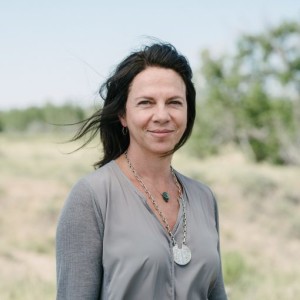
Wednesday Oct 03, 2018
Wednesday Oct 03, 2018
Good day and welcome to Tractor Time podcast. I’m your host, Ryan Slabaugh, the GM of Acres U.S.A., and we are excited to bring you another fun hour of conversation about ecology, agriculture, smart farming, human health – and more.
I want to thank our listeners. We recently went over the 20,000th download as a podcast, which is exciting for us. The world of eco-growers is always larger than we anticipate, and to us, that means things are changing for the positive. We hear so much about degenerative agriculture and its toxic toll on our world, but there is a silver lining – you. The listeners who are fighting tradition and convention with smart growing tactics, by understanding the soil, are the solution, and slowly but surely, we are making progress. It’s important we all agree on that one. It’s not that we don’t have challenges, and that they are not large and complicated, but we do not that the base-level agreement we want to get to is that the Earth, and its complicated and resilient life forms, will tell us what we need to know to grow our food. But it does require us to listen.
Okay, the high horse is getting tired, but it’s true. Our listeners are the silver lining, and one of the brightest spots on that lining is our guest today.
Daniela Ibarra-Howell is a native Argentinian, an agronomist by profession, and has more than 25 years of ranching experience. In 2009, she helped start The Savory Institute, headquartered in Boulder, Colorado, and became its CEO in 2011. Since then, she’s served on initiatives as wide as the UN Global Impact study, among a number of other roundtables and think tanks for healthy food and healthy agriculture. They are just too many to name.
Daniela will be a big part of Acres USA in the next couple months, a fact that we are very grateful for. She will be speaking at our annual conference in Louisville, Kentucky, Dec. 4-7, and keynoting an evening there. She will be featured in the November issue of our magazine, with an interview with Chris Walters. And, of course, we’re proud to have Daniela Howell on the Tractor Time podcast today.
Learn more about the Savory Institute at https://www.savory.global/.
Learn more about Acres U.S.A. at www.acresusa.com, or read our free, helpful content at www.ecofarmingdaily.com. You can find this contest on both sites, or for free in the Apple Podcast store.
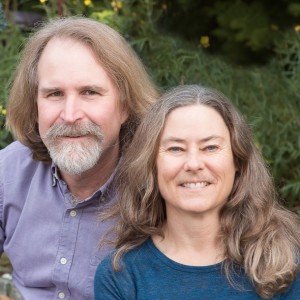
Thursday Sep 13, 2018
Thursday Sep 13, 2018
Good day and welcome to Tractor Time, a podcast brought to you by Acres U.S.A. Today’s podcast features two guests. Both live together in Seattle, and are writers, advocates and change agents and, it should be noted, both are quite brilliant as well – Biologist Anne Biklé and Geologist David Montgomery.
We have interviewed both separately, and will run their interviews back-to-back.
Our second interview you will hear on this episode, Anne Biklé, is a biologist with an interest in environmentalism and, most recently, soil life. She’s an active speaker and author of The Hidden Half of Nature: The Microbial Roots of Life and Health, which is available in our bookstore at acresusa.com.
We are going in depth on new science into life in the soil, and discuss the significance of all the new information to farmers and growers.
But to set the stage, we will get to our first guest, David Montgomery, Anne’s co-author on The Hidden Half of Nature, and a writer, geologist, professor, and researcher who will set the stage for Anne’s deep-dive into the soil. It’s also worth noting that David is a recognized genius – or at least, someone who has been recognized as the closest thing to it. David Montgomery is a Professor of Earth and Space Sciences at the University of Washington in Seattle, and a member of the Quaternary Research Center.
In 2008, In 2008 Montgomery received a MacArthur Fellowship, generally known as the “genius grant,” for his work as a researcher and writer.
His early work began in topics of topography and geology. He was all over the television after the tragic landslide in 2014 in his homestate of Washington, and since then, has published books connecting the ideas of healthy soil and healthy civilizations.
In 2016, Montgomery published "The Hidden Half of Nature: The Microbial Roots of Life and Health", a collaboration with Anne Biklé. The book addresses the relationship between microbial life, plants, and people.
His most recent work, Growing A Revolution: Bringing Our Soil Back to Life, released in May 2017.
Both are available from Acres U.S.A. store.
We welcome David Montgomery and Anne Bilké to the Tractor Time podcast.
Also, find all of the Tractor Time podcasts here, or for free in the iTunes store.
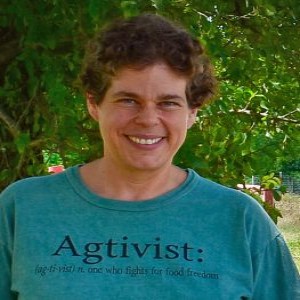
Friday Sep 07, 2018
Friday Sep 07, 2018
Good day and welcome to Tractor Time podcast brought to you by Acres USA. I am your host, Ryan Slabaugh, and we are excited to bring you another episode – this one will be about advocacy, and how to get involved to make real change happen.
Our guest today embodies that sentiment, Judith McGeary. Those who attend our conference every year should know her name, as she is a frequent speaker. But why we ask her to speak is most important – that she is the founder and leader of the Farm and Ranch Freedom Alliance, and represents about 1,000 ranchers and farmers in Texas who help advocate for government to better represent all of its constituents, not just the huge corporate farming interests. She’s also a rancher herself at the McGeary Family Farm a couple hours outside of Austin, Texas.
How she found her way into this role is something we’ll discuss during the podcast, and her story is inspiring. It involves a career change, and some life-changing moments with farmers and politicians.
Not only does Judith lead FARFA, but she serves as the executive director of the Council for Healthy Food Systems and on the board of the Farm-to-Consumer Legal Defense Fund. And this year, she’s leading the Raise Your Voice Tour to learn more about what type of advocacy farmers and ranchers need the most. We’ll get into that, and more, in this 40-minute talk.
You can learn more about FARFA at farmandranchfreedom.org, and their October conference. You can learn more about the Acres USA conference, where FARFA will be presenting, at www.acresusa.com.
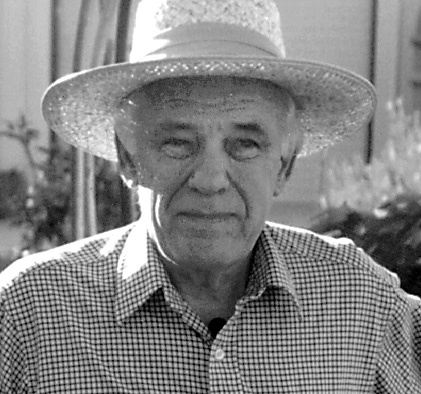
Thursday Aug 02, 2018
Thursday Aug 02, 2018
Welcome to Tractor Time, brought to you by Acres U.S.A., the Voice of Eco-Agriculture. I’m your host, Ryan Slabaugh, the GM and publisher of Acres USA.
Last week, I took a trip. I spent about 36 hours in the car driving from Colorado to Illinois, down to Columbia, Missouri, back to Illinois, and back home to Colorado. For a few days while I was in Missouri, I spent time at a sacred ground to us. At the University of Missouri, hidden among the tall brick buildings, is an open space called “Sanborn Field,” run by a guy named Tim Reinbott. You probably recognize the name if you’ve ever been to our conference.
There, Tim has built and preserved what a professor named William Albrecht built there a century ago. Prof. Albrecht started test plots in hopes of showing what happens when you grow corn, continuously without fertilizer or manure, and what that does to the soil. I’ll save you the suspense. It looks terrible. The stalks, miniature compared to the other, more well-fed test plots, were brown and only about two feet tall.
The video’s on our website, ecofarmingdaily.com, if you want to check it out, too. But it’s him talking about how, because Missouri’s soil has natural phosphorous and nitrogen, it wouldn’t take much to regenerate that continuous corn plot. But they aren’t going to do it. It’s too good of a reminder.
It was near these fields that Charles Walters met William Albrecht for the first time. Charles, while trying to piece together the information that would build the foundation for Acres USA’s belief in ecology-based agriculture, found scientists he kept interviewing telling him about Albrecht. Charles being Charles, he did his research and found out Prof. Albrecht was just down the road a couple hours. He called the university, and they told him not to bother. But, again, Charles being Charles, he got in the car anyway and drove to meet the scientist. When he knocked on the door, a voice boomed out, “Don’t knock when you enter and leave the same way.” Charles walked in – and I learned all this from his son, Fred – and when Charles walked in, without even an introduction, said, “You must be from Western Kansas. You have good teeth.”
Albrecht had pioneered research to connect local food to local health. It’s science that more should understand today. He pulled dental records from the military and matched those with the amount of calcium found in the soil and they matched. It’s an incredible study, still available for free on the University of Missouri’s academic research site.
Anyway, the conversation sparked a longtime friendship. Charles would edit more than a dozen volumes of Albrecht’s research, and used that research to develop his stubborn and accurate view of agriculture – that the only way to make money, to make farming a viable job, is to work with nature. He met other Albrecht students like Neal Kinsey, and founded a lifetime friendship – in fact, Neal and Charles may have been Albrecht’s last students.
In Columbia, we heard from more than a dozen farmers and consultants who employ the Albrecht system of growing, and have proven results. Most of them are using the mineralization techniques Albrecht preached – balancing magnesium and calcium – and advancing on that research with biological techniques of composting and manure and the like. Nobody walked away with a question of whether or not the methods lead to results. The irony – was that all this was being presented in Monsanto Auditorium. Their hold on farmers being educated is not lost, but the biological processes we were sharing in its halls were far more important. In a cynical way, it just reinforced why we were all there, and why Sanborn Field down the street is so sacred.
So anyway, all this driving and inspiration got me thinking, that for our next show, we needed to go back in time and dip into our archives, and find a good conversation with Charles Walters. We found one of the last talks of his career, and it was aptly titled, “Then, Today & Tomorrow.” Given in 2006, you will find it’s still relevant today.
Charles passed away a couple years later, so I guess we are in his tomorrow. To all those listening, let’s keep up the good work, keep our food connected to nature, and feel blessed to have those who came before us pave such a clear path ahead.

The Voice of Eco-Agriculture
Founded in 1971, we strive to be lifelong educational partners for farmers, ranchers and growers of all kinds. We strongly believe to farm economically, you must farm ecologically.
Learn more at www.AcresUSA.com




